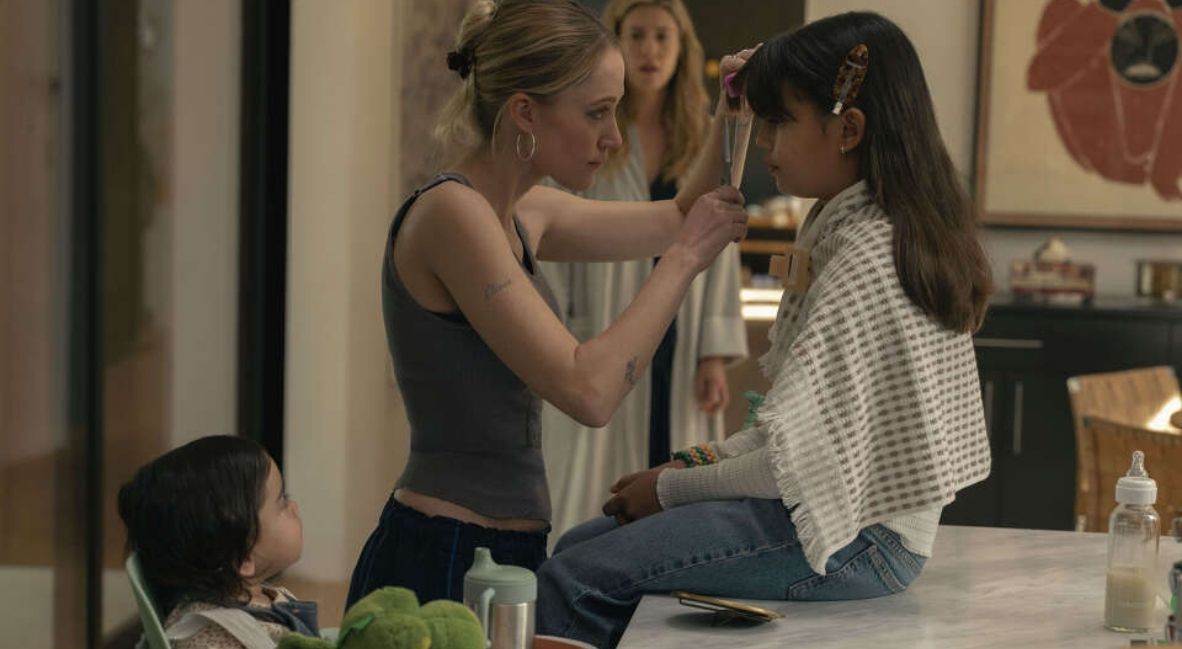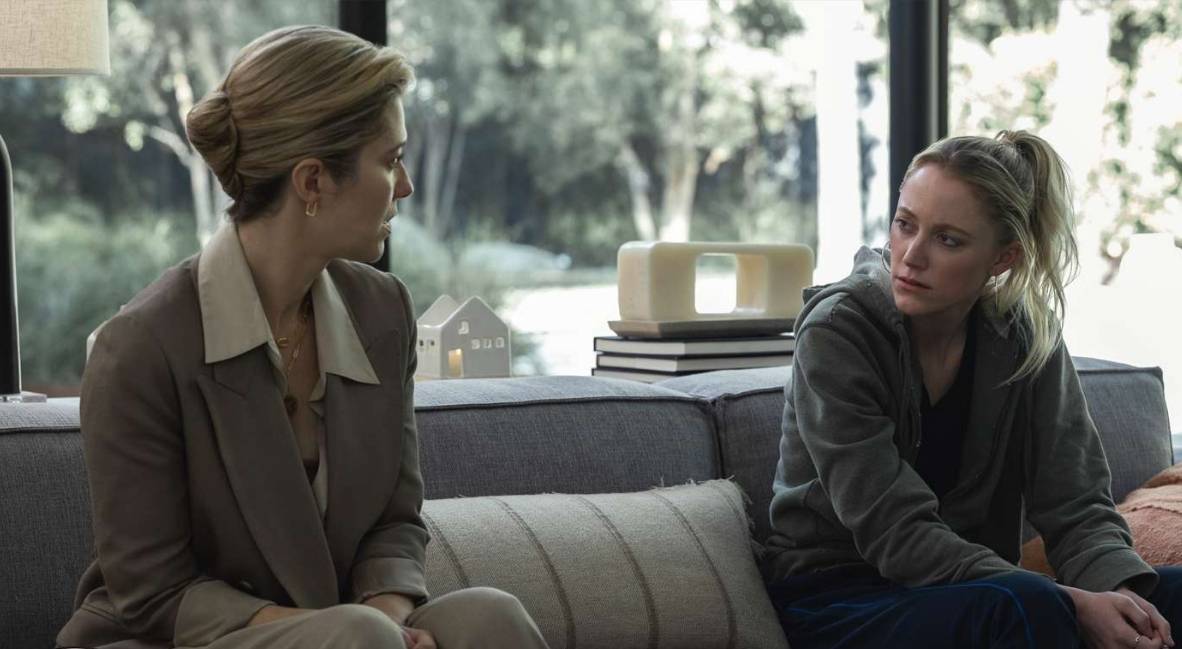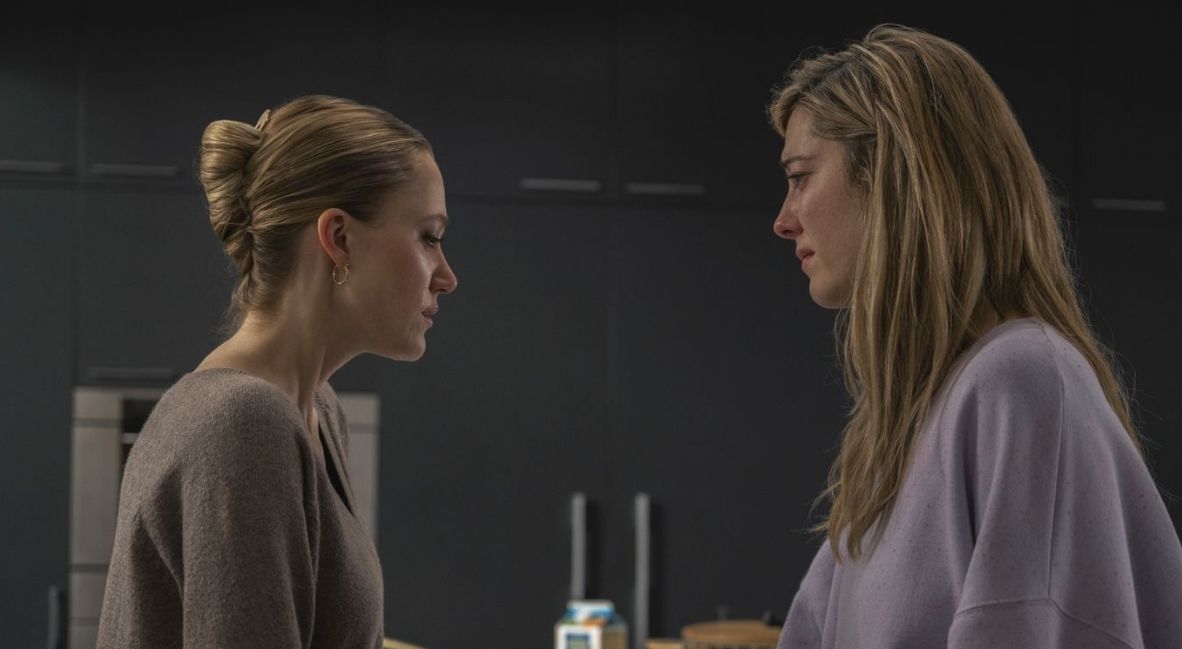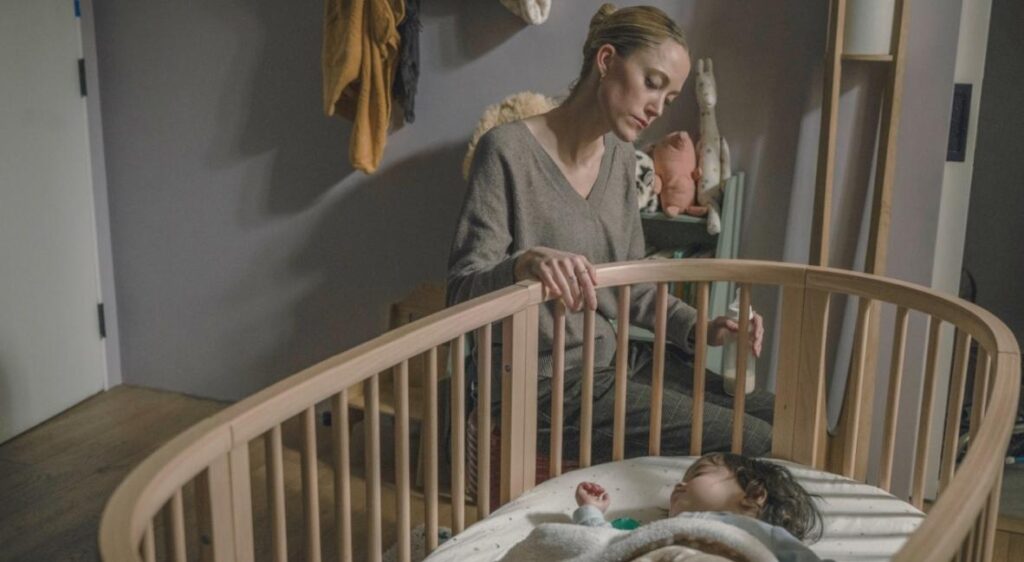Michelle Garza Cervera quickly became one of my favorite directors after her gutting take on motherhood in Huesera: The Bone Woman. In it, she tackled the idea of motherhood as a horror to be avoided. In her most recent film, the Mexican director tackles a classic with a remake of The Hand That Rocks The Cradle (2025) and, in doing so, continues her focus on maternal life through an entirely different lens.
Based on the original screenplay by Amanda Silver, The Hand That Rocks The Cradle (2025) is given a modern take by writer Micah Bloomberg. In it, we follow Caitlin Morales (Mary Elizabeth Winstead) after the birth of her second child. A mom in an upscale suburban neighborhood in Los Angeles, she offers legal services to people who need them. There, she meets Polly Murphy (Maika Monroe), who is trying to stay in her apartment after losing her job as a nanny and having her rent raised.
The two don’t necessarily hit it off, but it’s not a bad interaction, save a comment about Caitlin’s pregnancy. But when the two have a chance encounter after Caitlin gives birth, an opportunity arises. Polly needs a job, and Caitlin needs help with her newborn daughter, Josie (Lola Contreras), and her ten-year-old, Emma (Mileiah Vega).
While her husband, Miguel (Raúl Castillo), is loving, something is bubbling beneath the surface of their marriage. It may not be an active schism, but it is a scab that Polly’s presence begins to pick at as postpartum sets in heavy on Caitlin’s mind. If you’ve watched films with nannies before, The Hand That Rocks The Cradle (2025) embodies as many tropes from the genre as you can think of.
Michelle Garza Cervera follows up her debut horror film, Huesera, with a remake of a classic.

Michelle Garza Cervera’s directorial eye paints every scene knowing that she is exploiting our expectations. Cervera plays with her audience as each scene develops, pulling back just before the subgenre’s tropes come to life. And just when you think you understand where the film is going, it embraces the original film and the subgenre that spun out of it.
The tension in The Hand That Rocks The Cradle (2025) is grounded in the maternal fear of not being enough. Of having your daughters raised by others and loving them more than you in the process. It’s about losing perfection, but the real fear the film drives home comes from the relentless gaslighting Caitlin faces once she begins to suspect that Polly isn’t who she seems.
There’s something unsettling about watching a nanny disobey directives given by a parent. It taps into a space that isn’t abuse but spits in the face of family. As Polly stops listening to Caitlin, especially after Caitlin moves into the guesthouse, the unsettling nature of her presence intensifies. But the escalation comes when Caitlin’s daughter begins to actively and vocally resent her.

The wedge that Polly is driving between the family becomes immovable whenever Caitlin loses her temper. Her children don’t see what she sees, and her husband doesn’t either. There are two possibilities in The Hand That Rocks The Cradle (2025). The first is that Caitlin is wrong and is having a mental break, one that her husband and those around her seem to be expecting, and she loses her daughters because of it. The second is that Polly isn’t who she says she is, putting Caitlin and her family in danger.
While this is not a purely faithful adaptation, the connection between the two women still captures the core concept of the original. However, how the film builds to the reveal in the third act unfolds slowly, continuing to play with its audience. The circumstances surrounding the 2025 remake’s ending may differ from the original, but its takeaway remains the same.
Still, while The Hand That Rocks The Cradle (2025) does play with the story and expectations, it doesn’t do too much more than the original film, at least outside of the third act. To differentiate itself, Michelle Garza Cervera chose to showcase brutal violence on screen. We see blood, we see a crushed face, and a severed hand.
The Hand That Rocks The Cradle (2025) is a thrilling film, even if it is constrained by its source.

Cervera doesn’t pull her punches. While I appreciate the graphic approach that Cervera takes to the film’s visuals, it’s hard to fall in love with it, given the strength of Cervera’s original work in her previous film. There are moments where her originality breaks through, but I wish there were more.
However, where the film struggles, the performances from both Mary Elizabeth Winstead and Mika Monroe are fantastic. In the beginning, Caitlin has he hair slicked back, her clothes perfectly tailored, a vision of propriety. For her part, Polly has messy hair and a wardrobe that suits her age. As the film continues and tensions escalate, the two women switch roles. There is something stark not just in how Polly becomes irreplaceable in the Morales family, but also in how she begins to devour Catilin’s life.
Where the film’s pacing lets down its reveals, the film’s leads are a reason enough to watch the movie. As it stands, The Hand That Rocks The Cradle (2025) is split between being a thrilling remake and a story restrained by its source material. However, Michelle Garza Cervera’s vision showcases how much more she has to say about motherhood.
The Hand That Rocks The Cradle (2025) is available now on Hulu.
The Hand That Rocks The Cradle (2025)
-
Rating - 6/106/10
TL;DR
The Hand That Rocks The Cradle (2025) is split between being a thrilling remake and a story restrained by its source material. However, Michelle Garza Cervera’s vision showcases how much more she has to say about motherhood.







